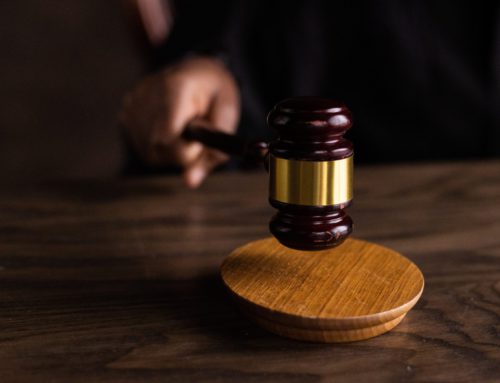If you’re wondering: what happens to accounts when someone dies? The short answer is that unless you tell companies that someone has died, their accounts will continue to run. If there are benefits from the government, or interest on savings then you risk breaking the law by failing to inform companies about the death.
Companies should be informed within 10 days, when someone dies.
You need to contact all the organisations that this person had an account with, as soon as possible. Tell them about the death and stop the accounts or transfer them. You will also need the Date of Death Balances for each account so that the estate can be valued for Probate and Inheritance Tax.
The Date of Death Balance is the value of an account on the date that a person died that was held either solely or jointly in the name of that person. Date of death balances are needed to work out the value of an estate, which must be done in order to calculate inheritance tax and to obtain a grant of probate.
How do I find out what accounts exist?
The person who has died might have organised their affairs and left a list of accounts and subscriptions, if not, then some detective work may be required.
You might want to start with bank statements if you can find them. These tell you the names of the companies that need to be contacted and often give an account number too. Alternatively, paper bills for gas, electricity, telephone etc. will give you information about individual companies that need to be informed. Finally, the wallet or purse of the person who died may contain credit cards and details of other memberships that need to be closed down.
If you have a bank statement but no other information, then Settld can help you identify what accounts need to be changed. Please contact our customer service team for advice. Visit our website www.settld.care or you can email support@settld.care or call us on 0333 111 1111 (9am-5pm, Monday to Friday).
Where do I start?
Dealing with the accounts relating to a property is a good place to begin. This involves contacting banks, utilities, telephone/broadband, entertainment subscriptions (such as Netflix, Disney, Sky, Amazon Prime etc). In order to do this, you will need to contact each organisation that the deceased had an account with to tell them that the person has died and ask them for the Date of Death Balances.
Settld can help you to contact companies. Our service is free to members of the public and is designed to make it easy for you to notify companies when a loved one has died. As well as notifying companies and obtaining Date of Death balances, you can request closure, transfer or amendment of their accounts. All you have to do is fill in a simple online form.
Which documents do I send to different companies?
Lots of companies ask for similar information and documents, but in different forms. Many have webforms for you to complete, others may allow you to email or phone them to inform them that someone has died, some will require you to post information.
When you contact organizations to say that someone has died they will generally ask for your details as the notifier, as well as details of the deceased. Most require the death certificate, some will also ask for the will. Financial institutions have the most stringent requirements. They are likely to need the will, grant of probate and the death certificate as well as needing you to prove your identity. It’s also useful to have a recent meter reading if you are contacting utility companies.
What do I need to ask them to do?
There are generally three types of change that you need to make to accounts after someone has died, depending on their circumstances. In each case you’ll need the Date of Death Balances.
-
If the person who died left behind a living spouse or civil partner who lives in the same property and will continue to do so;
-
- Ask for:
- Accounts to be changed into the surviving person’s name only AND
- The Date of Death Balances for the balance on each account on the day the person passed away
- Ask for:
-
If the person who died lived alone and the property is going to be sold or returned to a landlord;
- All account providers need to be informed and Date of Death balances obtained
- Some accounts (e.g. mobile phones/broadband, entertainment) will need to be closed straight away;
- If the property is going to be sold, then accounts that keep the property safe will continue to run (including house insurance, utilities, bank accounts). You still need Date Of Death Balances for these;
- The property will need to be cleared and it will need to be valued if going up for sale
-
If the person who died lived in a residential care home/hospice
-
- Any remaining account providers in sole or joint names need to be informed and Date of Death Balances given
- Joint accounts need to be changed to the name of the surviving account holder
What if there’s no will?
If there isn’t a will (this means the estate is intestate) then you’ll need to get “Letters of Representation” to show you have the legal right to deal with the estate. This involves filling in similar forms to applying for grant of probate.
We have an article on this subject to help you called: “What if there’s no will?”
What about probate?
You are unlikely to need to apply for probate if one of three situations applies:
- Joint Assets Only: If the person who died jointly owned land, property, shares or money with a spouse or civil partner that were worth less than £1 Million – then the funds all pass to living owner under the rule of survivorship; or
- Less than £5,000: The value of everything that the deceased owned in their own name is worth less than £5,000: or
- There were only savings and no other assets such as property, vehicles etc.
Otherwise, you will probably need to apply for probate (if there’s a will) or Letters of Representation (if there isn’t a will ). We’ve described this process in more detail in our article: “Probate – What is it and do I need to do it?”
At Settld, we can help you with this end-of-life admin. Our service is free to members of the public and is designed to make it easy for you to notify companies when a loved one has died, request closure, transfer or amendment of their accounts and request Date of Death balances. All you have to do is fill in a simple online form.
If you’d like to know more about Settld and how we can help, visit our website www.settld.care or you can email support@settld.care or call us on 0333 111 1111 (9am-5pm, Monday to Friday)
Further Reading:
- GOV.UK Tell Us Once
- Red Cross: How to Close Social Media Accounts of Deceased Loved Ones
- MoneySaving Expert: What to do when someone dies





